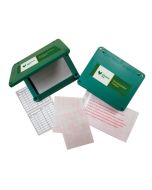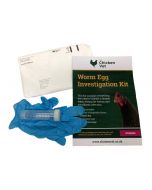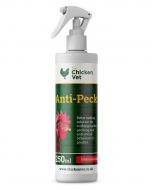Throughout your birds lives there may be a number of reasons why they will need to be housed, ranging from recovering from illness, extreme weather or avian influenza housing orders. In the UK we are seeing an increase in avian influenza outbreaks across laying flocks. Due to the increased risk to free ranging birds in specific areas we currently have a mandatory housing order (the East coast from North Yorkshire to Suffolk & Shropshire), this could become countrywide.
The aim of a housing order is to mitigate all risk to your birds with coming in contact with wild birds. Ideally, you would need a coop or enclosed area without access to the outside, or alternatively, a chicken house with a netted outdoor area that can be covered with a tarpaulin and netting small enough to prevent wild birds accessing the run (<25mm square).
Housing your birds can be stressful for your birds and may lead to behavioural changes or aggression. If your birds are housed it is vital that you provide enrichment as part of their daily routine. There are many different types of enrichment that you can provide for your birds, areas to focus on are food foraging behaviours, physical habit, sensory, social, cognitive stimulation. Introducing enrichment to their routine ideally should be implemented gradually and monitored to ensure that effects are beneficial rather than detrimental.
Scattering treats throughout a large area will encourage foraging behaviours. Treats can include garden scraps or specific poultry treats such as pecking blocks. Remember it is illegal to feed your chickens scraps from the kitchen, to avoid this we suggest purchasing poultry treats specifically for your hens or grow them. Keep the treats as healthy as possible and ensure they make up no more than 5% of your hen’s diet. Obesity in birds can see a reduction in egg production, vent prolapse, feather pecking and increased risk of heart problems.
Providing variation in their environments will allow your flock to express natural behaviours. If possible, set up an area suitable for foraging and one suitable for pecking. Small trays of sand mixed with diatomaceous earth are excellent to provide an area to dust bath and scratch in. Pecking enrichment can either be destructive, such as pecking blocks or lucerne bales, or non-destructible such as plastic milk cartons or footballs.
Maximising the space in your run and hen house by installing extra board walks where additional feeders, nests and drinkers can be placed will extend the space and minimise competition between your birds. Ensure no feed is given outside where wild birds may be attracted and feed fresh daily. An average bird of 1.8kg will consume roughly 125g of feed a day in in full lay.
Encouraging your birds to forage for food in hard-to-reach places, or to jump for treats allows them to do some problem solving and will keep them engaged.
During the time that your birds are housed it is important that you are still interacting with them and checking on their welfare. However, remember to practice good biosecurity before and after entering your run. To read more about biosecurity in backyard flocks, click here.
Coming up with new enrichment ideas for your birds can sometimes be tricky, here are some of our suggestions that could help keep them occupied.
- A chicken peck toy
- Hang old CDs around the run – your birds will have loads of fun chasing after the reflected light
- Edible treats – no more than 5% of your hens’ diet – fresh fruit and vegetables
- Hang up edible treats in the run – half a cabbage on a string works well
- Grit in litter or on the ground
- Perches – perfect for an afternoon nap
- A dust bath – one that can fit multiple birds for social bathing
It is important that you are consistent with your enrichment. If the birds are used to the enrichment and then it is removed, they can become stressed.
Not all, members of your flock will like the same enrichment, and they may become easily bored, diversifying the enrichment and trying new things will keep your birds happy and occupied. Bored hens can lead to aggressive behaviour within the flock. If feather pulling occurs due to boredom or stress, we recommend Anti-Peck which is an unpalatable solution which will cause your hens from attacking each other.
Supporting the welfare of your birds while they are housed with regular worm testing is important as they can still succumb to infestations. The Chicken Vet worming egg count test kit includes everything you need to collect faeces samples, and send to one of our laboratories, who will then contact you regarding the results.
Temperatures within your birds house is likely to increase with them being housed, ensure that they have proper ventilation, and that you are monitoring red mite levels. To easily check if there are red mites present in your birds’ house, we recommend mite traps and sticky pads.
If you have any concerns about your bird’s health or welfare, please contact your local vet. If you are unsure where your nearest chicken friendly vet is, you can locate them using our chicken friendly map.





